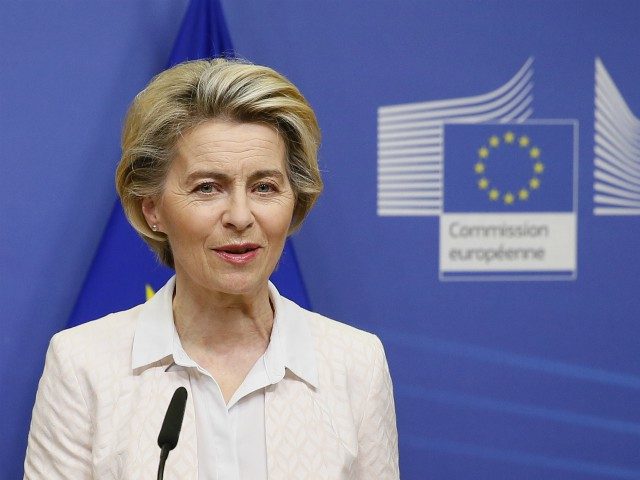Brexit leader Nigel Farage signalled that Britons would not “tolerate” an extension to the transition period after crunch talks over the past week have yielded no progress on a trade deal between London and Brussels.
The UK officially left the European Union on January 31st, 2020. However, it remains in a transition period with the bloc — tied to its Single Market, Customs Union, and other regulatory bodies — until December 31st. During this period, London and Brussels have been attempting to agree on future trading arrangements, with both sides aiming for a continuation of the free flow of goods without, or with little, tariffs.
However, while the United Kingdom seeks to regain full sovereignty, the EU has demanded Brexit Britain continue to abide by certain rules — namely ‘level playing field’ standards to prevent the UK becoming a regional competitor with the bloc. The EU also wants possible disputes in the future deal to be arbitrated by the European Court of Justice. Further, some continental countries — particularly France — have set a condition of having continued and unfettered access to Britain’s lucrative fishing waters.
Another week of negotiations ended again in stalemate on Friday, with Brussels’ Michel Barnier and London’s David Frost agreeing to “pause” negotiations, the BBC reported, as “the conditions for an agreement are not met, due to significant divergences on level playing field, governance and fisheries”.
Barnier later did not indicate that talks had ceased, however, saying: “If there is still a way, we will see.”
On Saturday, British Prime Minister Boris Johnson held a telephone conference with the president of the European Union’s powerful executive arm, the European Commission.
Following Prime Minister Johnson’s call with President Ursula von der Leyen that evening, the leaders issued a statement saying that while “significant differences remain” — and have done for several months — talks would continue on Sunday in Brussels, adding that they would evaluate on Monday night whether it is still possible for a deal to be made.
Johnson and von der Leyen said: “Whilst recognising the seriousness of these differences, we agreed that a further effort should be undertaken by our negotiating teams to assess whether they can be resolved.”
“Both sides underlined that no agreement is feasible if these issues are not resolved,” they added.
I do hope that this lack of an agreement does not mean we are heading for an extension.
After four and a half years, Brexit voters won't tolerate that.
— Nigel Farage (@Nigel_Farage) December 5, 2020
If the two parties can agree on a deal, then the UK and EU will trade on similar terms to now from 2021. If an agreement cannot be made, the UK will trade with the bloc on World Trade Organization (WTO) terms.
However, a third option exists: extending the transition period, where the UK remains in continued limbo, tied to the bloc’s rules but not a member of the bloc and consequently unable to action any trade deals with new countries it may have agreed.
Media reported that the European Union had already proposed an extension period, during which negotiations for a deal would continue, but the UK had already reportedly rejected the offer.
Last night, Brexit leader Nigel Farage expressed concern that the continued stalemate in negotiations, with British politicians showing little sign of readiness to end talks and prepare for a WTO exit, signalled that the country was at risk of a Brexit delay.
“I do hope that this lack of an agreement does not mean we are heading for an extension. After four and a half years, Brexit voters won’t tolerate that,” Mr Farage said.
On Friday, Mr Farage said that another risk remains: that of the Johnson agreeing to yield to some, or all, of Brussels’ demands in order to secure a deal before 2021. He reminded supporters that “no deal is better than a bad deal”, adding that Prime Minister Johnson should be willing to take a short-term risk of disruption in exchange for the longer-term guarantee of full sovereignty if a mutually beneficial agreement cannot be signed.
Farage warned: “I would rather have some short-term disruption knowing that we’re genuinely free, but I just don’t think the prime minister has got the bottle to do that.”
AP contributed to this report.
‘No Deal Is Better Than a Bad Deal’: Farage Predicts Boris Will ‘Sell Out’ Brexit, as Crunch Talks Are ‘Paused’ https://t.co/0jKc1T8gzd
— Breitbart London (@BreitbartLondon) December 5, 2020

COMMENTS
Please let us know if you're having issues with commenting.